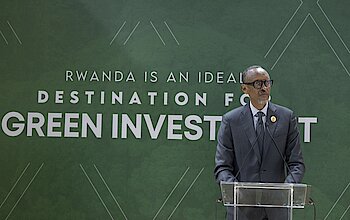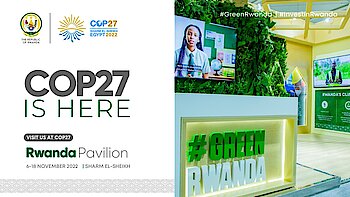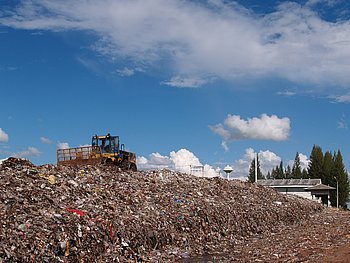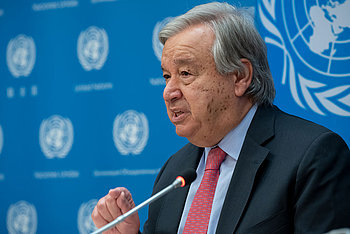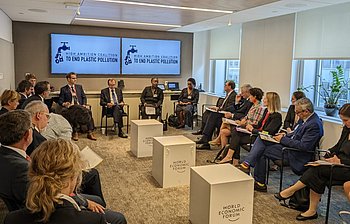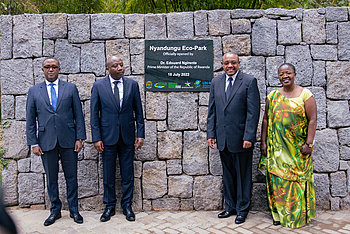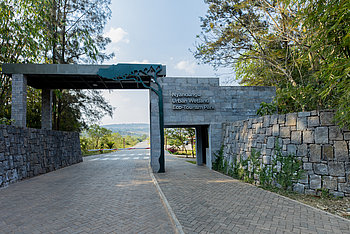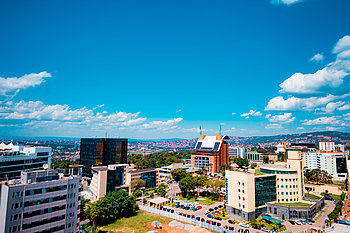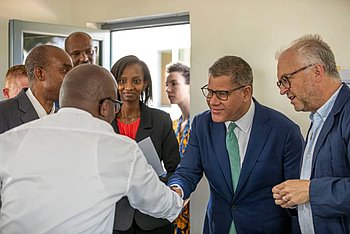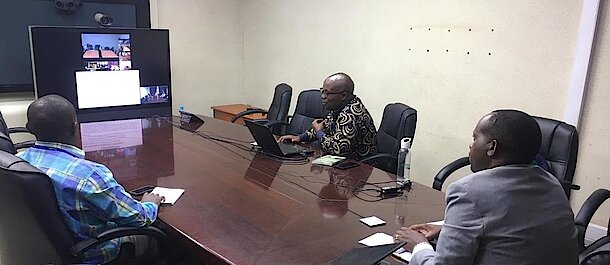
Assessment of Rwanda’s vulnerability to climate change was presented to local authorities
Rwanda Environment Management Authority (REMA), with the logistical support of Ministry of Local Government (MINALOC), hold a video conference with Province and District representatives from all over the country on 17th March 2020 to present the findings of the latest assessment of climate change vulnerability and discuss proper measure to implement the recommendations to reduce vulnerability to climate change.
Global changes in temperature and precipitation and the regional distribution of those changes are the primary drivers affecting climate-related natural hazards such as floods, landslides and droughts that stroke Rwanda in recent years with a devastating effect on the population. From the livelihoods of rural populations to food security in urban areas, the core gateway transport, communication, energy, health, water control, and institutional systems upon which populations depended failed during some cases.
The capacity and scale of adaptation to climate change depends on the vulnerability of people and natural systems to the impacts, where vulnerability is the susceptibility shaped by exposure, sensitivity and resilience.
The report presented to local authorities provides an examination at the country’s vulnerability by taking a detailed look at climate change vulnerability in the country’s 30 districts focusing on households using various indicators of household vulnerability. This report also updates REMA’s national level vulnerability assessment, first prepared in 2015, using a broad range of indicators of vulnerability that were selected during the preparation of the first assessment.
Using indicators of exposure and sensitivity to climate change as well as adaptive capacity, this report provides a comprehensive data-driven picture of climate change vulnerability facing Rwanda. Data was collected through a survey of 2,407 households in all districts of the country; data has been analyzed and presented at the district and provincial levels.
This assessment provides an understanding of the relative vulnerability to climate change of the four provinces, the City of Kigali and 30 districts based on a vulnerability index. The climate change vulnerability index uses numbers to assess jurisdictions, which have then been categorized as Low, Medium and High vulnerability.
Local authorities were urged to the report’s recommendations in detail and make commitments to take action and renew their commitments to fight the effects of climate change. Districts were encouraged to press ahead with the implementation of the ‘green economy’ plans within their District Development Strategies (DDS). Where possible districts should review their development strategies and planned projects and ensure their plans are informed by this report’s assessment of their climate vulnerabilities, and by future climate scenario.
The report also include an assessment of vulnerability at sectoral level whereby the report reviews new data collected using the National Framework for Vulnerability Assessment established in 2015 with 37 indicators of vulnerability. It analyses the changes that have taken place since data was first gathered in 2015.
The analysis reveals that increases or improvements in adaptive capacity are helping to reduce the vulnerability of the country in the face of climate change. However these improvements have been offset to some extent by increases in the impact of climate change. Recommendations are provided aimed at targeted action to reduce the sensitivity of the country to climate change factors and to build the adaptive capacity in order to reduce vulnerability and improve the level of resilience.
Topics
More posts
PRESIDENT KAGAME LAUNCHES IREME INVEST AT COP27
The President of the Republic of Rwanda, His Excellency Paul Kagame has on November 7, 2022 launched Ireme Invest at the United Nations Climate Change…
Rwanda calls for greater climate action and shares green investment opportunities at COP27
Rwanda will press for more ambitious climate action and share the country’s green investment opportunities at this year’s UN Climate Change Conference…
Why mitigating methane emissions is urgent now?
As methane emissions continue to increase, there are more reasons than ever to reduce methane emissions. Reducing human caused methane emissions is…
UN General Assembly (UNGA 77) has placed Climate Change on top of agenda
UNGA 77 comes at a critical moment for climate and the future of our planet. The impacts of climate change have been observed across the world such as…
REMA’S DG JOINS A ROUNDTABLE MEETING AT UNGA TO DISCUSS CIRCULAR ECONOMY
The Director General of the Rwanda Environment Management Authority (REMA), Juliet Kabera, on 20th September 2022, joined a roundtable meeting in New…
PRIME MINISTER OF RWANDA, DR EDOUARD NGIRENTE, OFFICIATES NYANDUNGU ECO-PARK UNVEILING
Rwanda’s Prime Minister, Dr Edouard Ngirente, has on 18 July 2022 officiated the unveiling of Nyandungu Eco-Park. The event was held on the first day…
Nyandungu Eco-Park Opens to the Public
From a degraded wetland to an educational and recreational eco-park in the heart of Rwanda’s capital city, Nyandungu is now open to the public.
- The…
Top takeaway from Rwanda First Biennial Update Report submitted to the UNFCCC
In December 2021, Rwanda submitted the first Biennial Update Report to the United Nations Framework Convention on Climate Change (UNFCCC). This is in…
VIP VISIT FOR AFRICA’S CLEAN COLD CENTRE SHOWS HOW WE CAN KEEP ALIVE THE GOAL OF 1.5 DEGREE CELSIUS
COP President, the Rt. Hon. Alok Sharma MP, visited the Africa Centre of Excellence for Sustainable Cooling and Cold-chain (ACES) during his…
